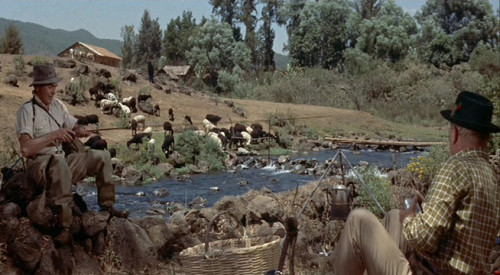 When Jake Barnes and Bill Gorton stop for lunch while trout fishing on the Irrazy River, it looks like a picnic. Whether it’s a lunch or a picnic doesn’t matter because it’s when Hemingway chooses to reveal Jake Barnes’ spiritual disquietude...
When Jake Barnes and Bill Gorton stop for lunch while trout fishing on the Irrazy River, it looks like a picnic. Whether it’s a lunch or a picnic doesn’t matter because it’s when Hemingway chooses to reveal Jake Barnes’ spiritual disquietude...
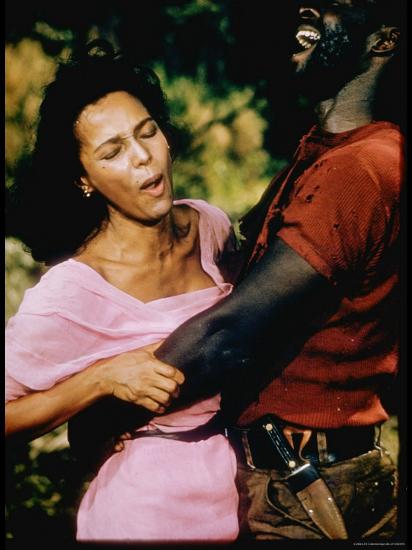 According to Heyward, “It was the day set for the grand parade and picnic of “The Sons and Daughters of Repent Ye Saith the Lord,” and, with the first light of morning, Catfish Row had burst into a fever of preparation.” Expectations promise...
According to Heyward, “It was the day set for the grand parade and picnic of “The Sons and Daughters of Repent Ye Saith the Lord,” and, with the first light of morning, Catfish Row had burst into a fever of preparation.” Expectations promise...
 Conrad Aiken’s “Strange Moonlight” (1925) is a moody picnic story. It’s an elegy on death seen through the eyes of an unnamed young boy, somewhere between nine and eleven years old, who is bewildering affected by the death of his dear friend...
Conrad Aiken’s “Strange Moonlight” (1925) is a moody picnic story. It’s an elegy on death seen through the eyes of an unnamed young boy, somewhere between nine and eleven years old, who is bewildering affected by the death of his dear friend...
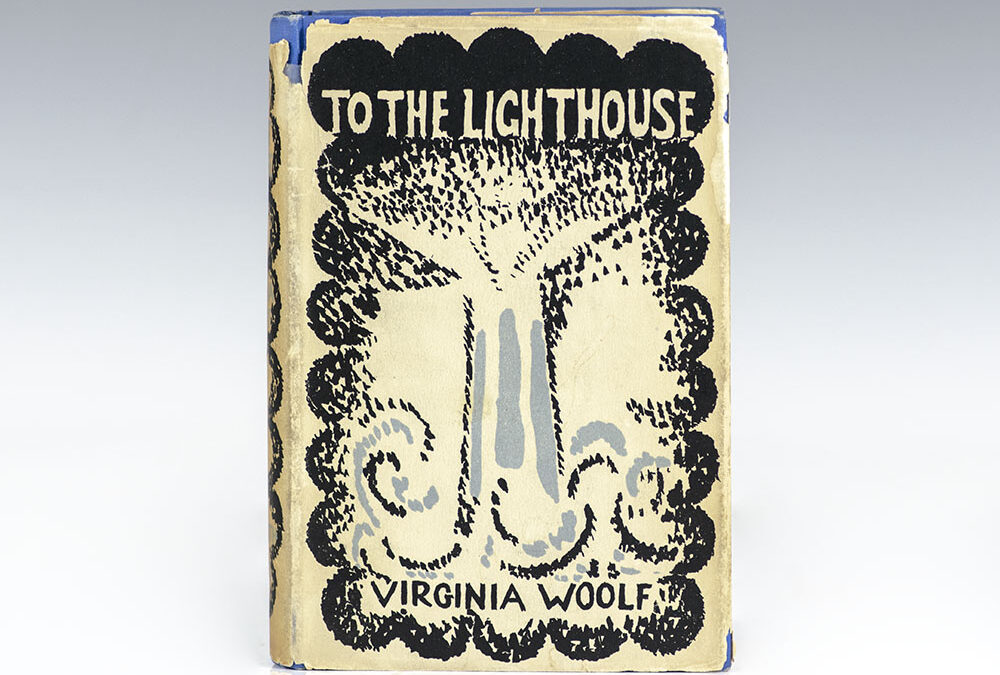 Except for the picnic on Monte Rosa in The Voyage Out, Woolf’s other picnic is in To the lighthouse. It’s a skimpy lunch shared by Mr. Ramsay, James, and Camas as they sail to the lighthouse. Just before reaching the island, Mr. Ramsay announces that...
Except for the picnic on Monte Rosa in The Voyage Out, Woolf’s other picnic is in To the lighthouse. It’s a skimpy lunch shared by Mr. Ramsay, James, and Camas as they sail to the lighthouse. Just before reaching the island, Mr. Ramsay announces that...
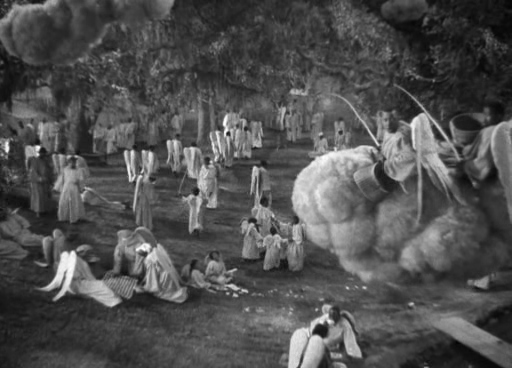 Bradford did not see it, but Ol’ Man Adam is imbued with his inherent racism. He means to entertain by portraying rural, uneducated happy-go-lucky African Americans retelling Old Testament stories in a dialect that’s more Bradford’s than theirs....
Bradford did not see it, but Ol’ Man Adam is imbued with his inherent racism. He means to entertain by portraying rural, uneducated happy-go-lucky African Americans retelling Old Testament stories in a dialect that’s more Bradford’s than theirs....
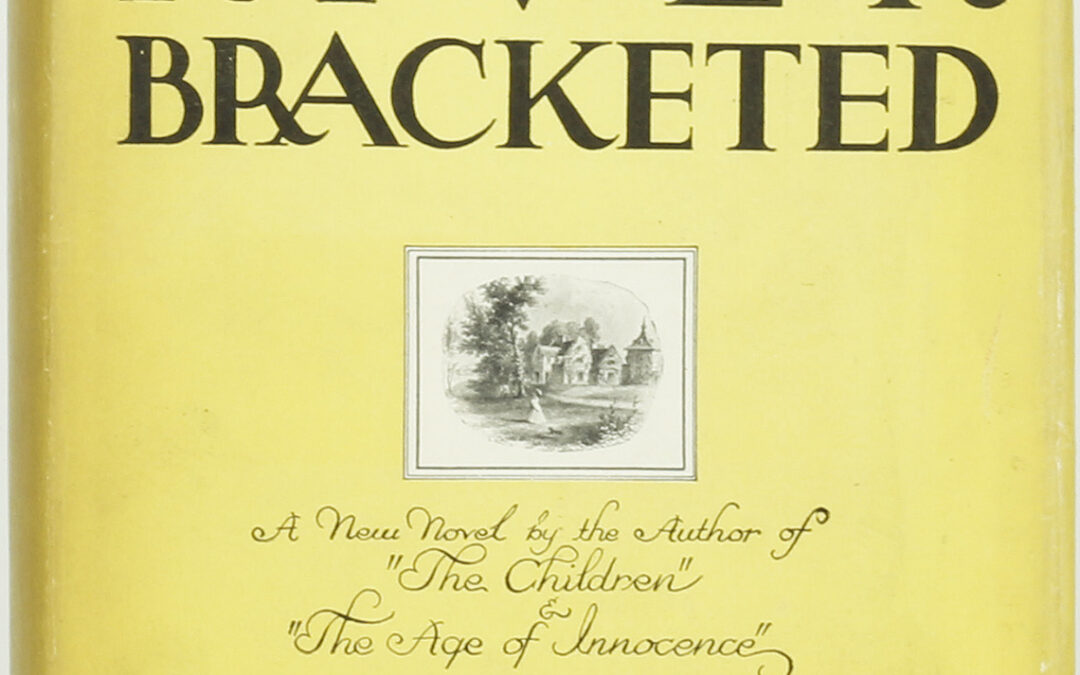 Wharton’s Hudson River Bracketed has two picnics, and I’ll treat each as a separate posting. Each picnic features the protagonist Vance Weston with different women, Halo (Héloïse) Spear on Thundertop Mountain at sunrise over the Hudson River, and Laura Lou...
Wharton’s Hudson River Bracketed has two picnics, and I’ll treat each as a separate posting. Each picnic features the protagonist Vance Weston with different women, Halo (Héloïse) Spear on Thundertop Mountain at sunrise over the Hudson River, and Laura Lou...
 The Thundertop picnic at sunrise over the Hudson River is the first of two picnics in Wharton’s Hudson River Bracketed. The other is a honeymoon picnic on an ocean beach, which I’ve treated in a separate posting. Both picnics are extended metaphors for...
The Thundertop picnic at sunrise over the Hudson River is the first of two picnics in Wharton’s Hudson River Bracketed. The other is a honeymoon picnic on an ocean beach, which I’ve treated in a separate posting. Both picnics are extended metaphors for...
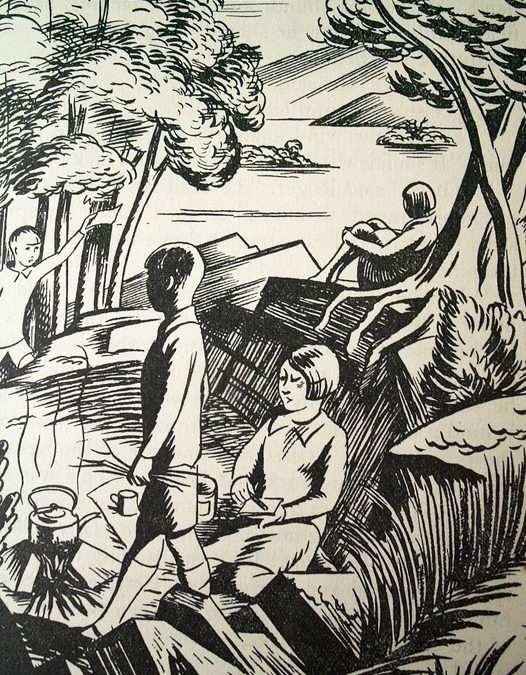 Ransome’s Swallows and Amazons takes its name from the Swallow and the Amazon, two fourteen-foot dinghies that the childre n of the Walker and Blackett families sail in Coniston Lake in the English Lake District, where they play pirates and picnic at their...
Ransome’s Swallows and Amazons takes its name from the Swallow and the Amazon, two fourteen-foot dinghies that the childre n of the Walker and Blackett families sail in Coniston Lake in the English Lake District, where they play pirates and picnic at their...
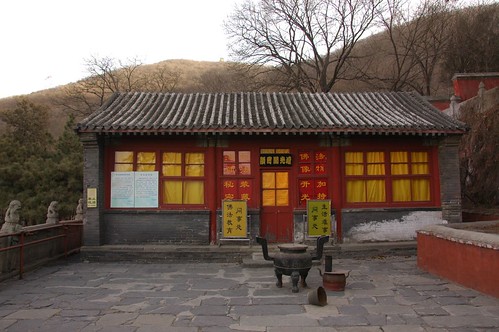 Bridge’s Peking Picnic is autofiction based on her life as the wife of the British Oriental Attaché in Peking. The romantic interlude suggests that Bridge’s real-life marriage to Owen O’Malley was no picnic. It’s the story of picnic romance...
Bridge’s Peking Picnic is autofiction based on her life as the wife of the British Oriental Attaché in Peking. The romantic interlude suggests that Bridge’s real-life marriage to Owen O’Malley was no picnic. It’s the story of picnic romance...
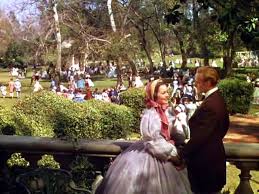 Scarlett O’Hara’s first encounter with Rhett Butler is an April picnic at the Wilkes family’s Twelve Oaks plantation. It’s only days before the Civil War begins in Charleston, South Carolina (April 12, 1861), and the picnickers are oblivious to...
Scarlett O’Hara’s first encounter with Rhett Butler is an April picnic at the Wilkes family’s Twelve Oaks plantation. It’s only days before the Civil War begins in Charleston, South Carolina (April 12, 1861), and the picnickers are oblivious to...











